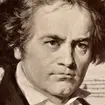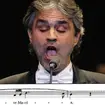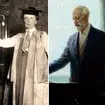Discovering The Great Composers - Franz Schubert
Adored yet ignored; musical conservative yet trailblazing visionary; fully paid-up Classicist yet out-and-out Romantic; emotionally complex yet expressively simple – never have so many contradictions been as tantalisingly combined as in the unique genius that was Franz Schubert.
Schubert is widely celebrated as one of the four great pillars of Classicism – along with Haydn, Mozart and Beethoven. Yet although his music has become a vital part of our listening today, during his own short lifetime he was seen as someone on the periphery of the Beethoven mainstream.
The popular image we have is of Viennese coffee society warmly embracing his latest creations, but according to English musicologist Donald Tovey, a popular music dictionary of the 1830s contained “five Schuberts, but Franz Schubert was not among them”.
That said, the 19th century’s rediscovery of Schubert was as swift as it was comprehensive. Some 10 years after his death, Robert Schumann discovered a chest containing some of Schubert’s greatest works.
“The riches that lay here made me tremble with excitement,” he enthused. Among them was the original manuscript of the “Great” Ninth Symphony, which, Schumann excitedly reported, “transports us into a world where I cannot recall ever having been before”.
Just three months later, Felix Mendelssohn conducted the premiere in Leipzig. Declaring Schubert “the most poetic musician who ever lived”, Franz Liszt then set about making a series of celebrated song transcriptions for solo piano and Johannes Brahms later took on the responsibility of editing and seeing much of Schubert’s music safely through the printing presses.
Not everyone took equally to the great songsmith’s exalted lyrical gift, however. Debussy dismissed his songs as possessing “the odour of bureau drawers of provincial old maids – ends of faded ribbon – flowers forever faded and withered – out-of-date photographs. Only they repeat the same effect for interminable stanzas.”
Yet over the years, Schubert’s fan base has widened and intensified so that few would now take issue with the great German pianist Arthur Schnabel, who described him as “the composer nearest to God”.
So who exactly was the self-effacing genius who achieved so much during a mere 15 years of serious composing?
Well, the first surprising thing about this most effortlessly spontaneous of composers is that he wasn’t a prodigy – at least not in the sense of a Mendelssohn (another genius cut short in his prime), Saint-Saëns, or Korngold.
Born the son of a Viennese schoolmaster, who picked up early on Franz’s musical ability and taught him the violin, his first notable musical achievement was to win a place in the prestigious Imperial Court chapel choir, at the age of 10.
Here his main tutor was none other than Antonio Salieri, now in his mid-fifties and widely rumoured (entirely without foundation) to have poisoned Mozart out of professional jealousy some 20 years beforehand. Yet he was a brilliant teacher, and within three years Schubert was making up for lost time, composing his first string quartets, songs, and piano pieces.
By the time he left the chapel school in 1813, the 16-year-old student had an unusually accomplished First Symphony under his belt, and a glowing reputation as a conductor.
Yet Schubert was no Beethoven, temperamentally or creatively – the idea of making the break and trying to go it alone as a freelancer was simply not an option at this time. As a result he toed the family line, completed the mandatory year’s teacher training, and joined the staff at his father’s school.
Initially, the move seemed an unmitigated disaster. Schubert loathed teaching and, as he was barely older than many of his charges, found keeping discipline a gruelling challenge.
Yet just as it seemed that he would surely flounder, Schubert began using his compositions as the natural outlet for his churning emotions, most notably in his first indisputable masterpiece, Gretchen Am Spinnrade (“Gretchen at her Spinning Wheel”, 1814). This marked the turning point: while continuing to teach full-time, the following year Schubert composed 145 lieder, two symphonies (Nos.2 and 3), two sonatas and a series of miniatures for solo piano, two mass settings and other shorter choral works, four stage works, and a string quartet – in addition to various other projects. It may have been a long time coming, but Schubert was now writing with a speed and fluent mastery that no one could have predicted.
Yet, tragically, Schubert had only 13 years of life remaining to him. Had he stayed safely closeted in the stifling school environment things may well have turned out differently, but a chance encounter with a music-loving art student, Franz von Schober, finally convinced Schubert to make his way in the world as a bona fide composer.
He began moving more freely in Vienna’s artistic circles, and, it is now generally assumed, enjoyed a number of ill-advised liaisons that resulted in the syphilitic infection that would eventually kill him.
If being away from the school’s rigid confines brought with it a certain sense of relief, the harsh economic reality of trying to eke out a decent existence from composing soon made itself felt – and Schubert was sadly ill-equipped to cope.
First and foremost he was not a virtuoso pianist, so unlike Beethoven he was unable to attract potential customers directly through his own playing. He also lacked Beethoven’s shrewd business acumen: before the Bonn master went freelance, he had a whole host of noble patrons eating out of the palm of his hand.
By comparison, Schubert’s only close contact with those of power and influence was during the summers of 1818 and 1824, when he was appointed music tutor to Count Johann Esterházy’s family in Zseliz.
Add to that Schubert’s unprepossessing appearance – short, chubby, round-faced, button-nosed and ruddy-cheeked, topped off by small round spectacles – his quiet, unassuming personality, and an exquisitely subtle musical style that lacked the kind of instant dramatic appeal needed to attract large audiences and music publishers, and it was an uphill struggle.
And yet Schubert did not lack supporters. Although during the early 1820s such hallowed masterpieces as the Trout Quintet, Wanderer Fantasy and Unfinished Symphony remained largely unacknowledged, the public’s insatiable demand for Schubert’s lieder resulted in a near-continuous stream of gems capped by his first song-cycle, Die Schöne Müllerin (“The Fair Maid Of The Mill”) in 1823.
Schubert’s growing band of admirers, derived largely from Vienna’s middle classes, did all they could to support their hero. Schubertiads became one of the absolute “musts” on the social calendar, during which the composer’s fans would gather together, perhaps to take the evening air, have a picnic, go for a pleasure trip on the river, and then to listen to some of their hero’s latest songs.
Schubert was even invited to write some music to accompany the city’s latest staged dramas, but despite some small success with Rosamunde, composing colourful incidental music was never really his forte.
Had Schubert simply resolved to continue producing attractive songs for the soirée set, no one could have blamed him. But instead he appears to have moved onto an entirely new level of musical mastery with such deeply disturbing valedictory offerings as the song cycle Winterreise (“Winter’s Journey”), the String Quintet, the Great C major Symphony, and his last three piano sonatas (Nos.19-21).
The temporal expansion of these masterworks suggests a composer on the verge of new discoveries at almost exactly the same age Beethoven was when he entered his “middle” period.
For Beethoven the catalyst was the tragedy of his encroaching deafness, but for Schubert it was the strange feeling that his days were severely numbered. The syphilitic fits of giddiness that had plagued him since the early 1820s were gathering in intensity and his general health was deteriorating fast.
In March 1827 Schubert was one of the torchbearers at Beethoven’s funeral. A year later, on March 26, 1828, an all-Schubert concert was given in Vienna, which appeared to signal a new interest in the young composer’s work.
But it was sadly too late to make any difference. Just eight months later, Schubert was also laid to rest in Vienna’s Währing Cemetery. In 1888, both composers’ remains were moved to the Zentralfriedhof, where they now rest alongside one another.
“The art of music here entombed a rich possession,” reads the prophetic inscription on Schubert’s tombstone, “but even fairer hopes.”
























